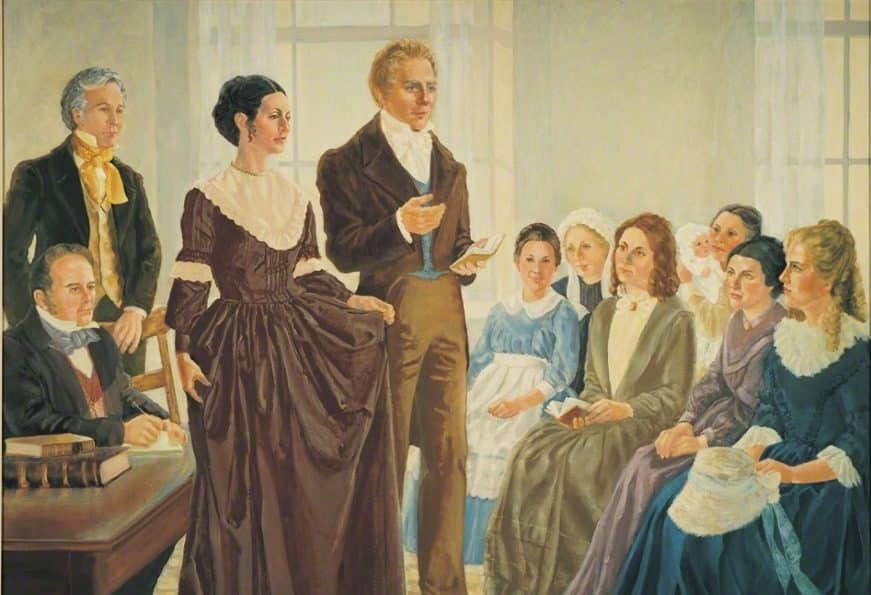

To many younger members of the church especially, this might sound like a rhetorical question. To them, the idea of men “presiding” in home or acting in any way other than equal partners in a marriage and family seems increasingly foreign. By and large, it’s not the way a new generation of Latter-day Saints is choosing to approach family.
It’s a little different in the church, however. The church is led by men—a patriarchal institution living in an increasingly non-patriarchal world. Some recent changes (including changes to temple ordinances) seem to indicate a subtle shift, but no fundamental changes seem to be on the horizon. Our theology remains fundamentally patriarchal. Despite proclaiming belief in a Heavenly Mother “a cherished doctrine,” she remains conspicuously absent from our temples and from most official church messaging.
So is patriarchy a big problem for a modern church? Shouldn’t it simply be disavowed as a cultural relic of a bygone era? Or is there something really valuable that we risk losing if we pursue a conventional, “modern” path toward gender equality?
Some point out that (particularly in developing countries where the church is seeing its greatest growth) the church actually serves an important role in challenging men to lead and to show up meaningfully in the lives of their spouses, children and communities.
We have asked Rosalynde Welch, a brilliant young scholar and Senior Research Fellow at BYU’s Neal A. Maxwell Institute, to address this Big Question. She argues persuasively that, rather than scrapping the church’s gender practices, perhaps we should look at “Repurposing Patriarchy.”
We then bring Neylan McBaine, a very prominent Latter-day Saint voice on women’s issues, into the conversation in this terrific interview on the future of women in the church.
Barbara Morgan-Gardner, a professor or religion at BYU wrote a groundbreaking book called The Priesthood Power of Women, published by Deseret Book. We share this conversation where she explores the important themes ot the book.
Next, we offer this conversation with three powerful Latter-day Saint women, Carol Lynn Pearson, Jana Spangler, and Becky Edwards in which they explore how the unique doctrine of a Heavenly Mother can inspire spiritual practices and traditions that acknowledge Her reality in our spiritual lives. And what can women do to ritualize and celebrate milestones in women’s lives?
Finally, we’re including this conversation between BYU professor Rachel Cope and scholar and writer Melissa Inouye, about “Wrestling with Patriarchy at BYU.”